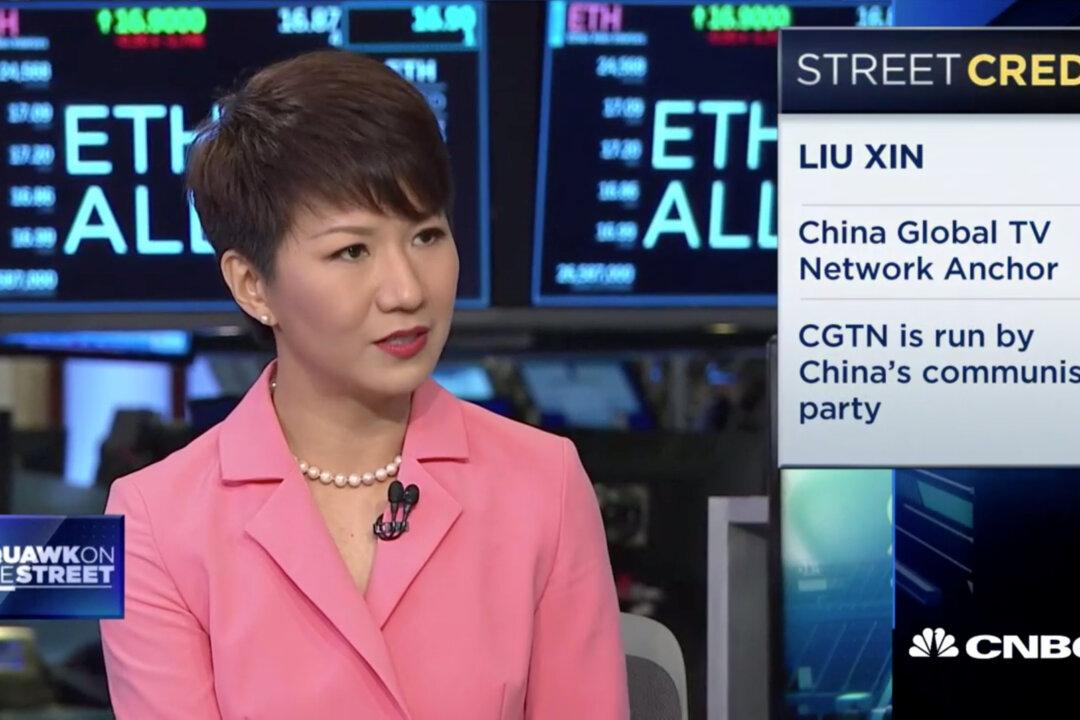A Chinese state-media host echoed the Chinese regime’s propaganda in depicting the Hong Kong protesters as “rioters” during an appearance on U.S. cable television on Sept. 3.
Liu Xin, host of a talk show on China Global Television Network (CGTN), the overseas arm of China’s state broadcaster China Central Television (CCTV), was interviewed on CNBC’s “Squawk on the Street” to discuss the ongoing Hong Kong protests and the U.S.-China trade war.





